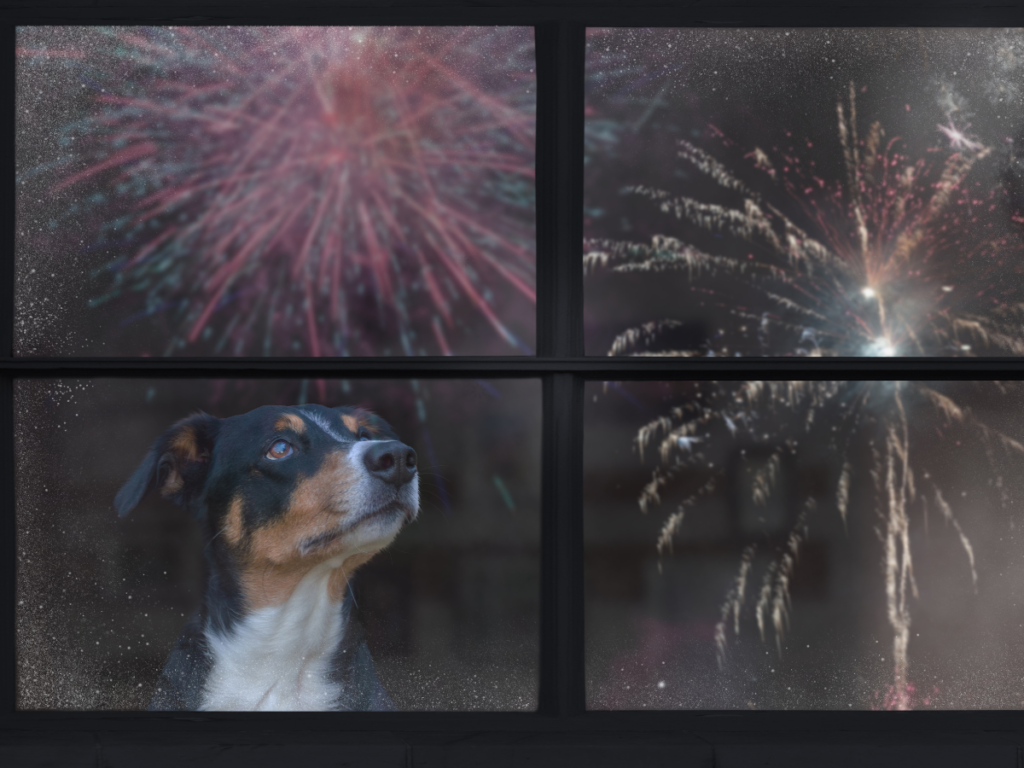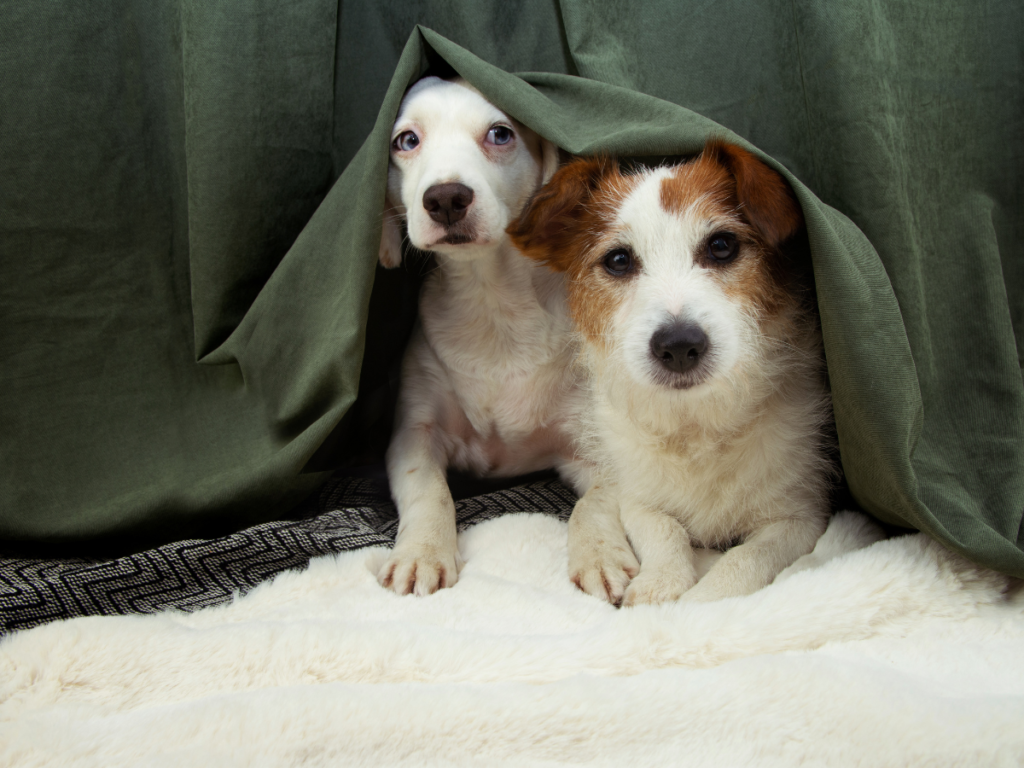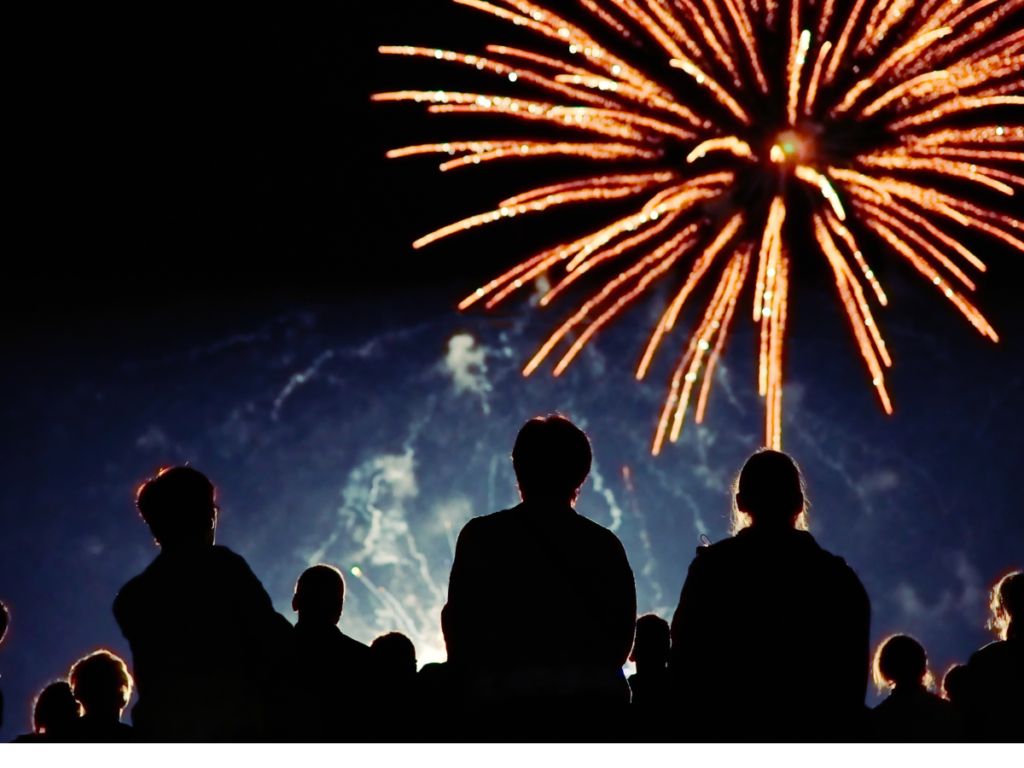
Fireworks, as dazzling as they are for us, can be equally terrifying for our dogs and cats. It’s a scenario that unfolds yearly, especially during major holidays like the Fourth of July and New Year’s Eve. Animal shelters across California and the rest of the United States have witnessed a significant increase in the number of dogs seeking shelter. These dogs, in a state of panic caused by the loud noises of fireworks, often flee their homes, putting them at a heightened risk of getting lost or injured. This blog post empowers dog owners with strategies to minimize stress for their dogs during fireworks displays, ensuring their safety and calmness.
Understanding the Impact
Fireworks can induce severe anxiety and fear in many dogs. The loud noises and bright flashes are unfamiliar and can be overwhelming, causing dogs to react instinctively. It’s not uncommon for dogs to break through windows or escape from yards in an attempt to flee the terrifying sounds. According to statistics, animal control services in California have reported up to a 30-40% increase in lost pet incidents following fireworks events, particularly around the Fourth of July.
Minimizing Stress and Anxiety

1. Create a Safe Space
Prepare a comfortable area inside your home where your dog can feel secure. This could be a quiet room away from windows, such as a bathroom or a basement, where the sound of fireworks is muffled. Make sure this space is escape-proof and has plenty of their favorite blankets and toys.
2. Use Sound Therapy
Help mask the noise of fireworks by playing calming music, white noise, or a TV at a volume that helps drown out the external sounds. There are also specially designed playlists and dog-calming music available online that can help soothe anxious pets.
3. Consider Anxiety Aids
Talk to your veterinarian about options to help manage your dog’s anxiety. This could include pheromone diffusers, anxiety wraps, or vests that apply gentle, constant pressure similar to swaddling a baby. In some cases, medication might be appropriate.
4. Desensitization Training
In the weeks leading up to fireworks season, consider working with a professional trainer on desensitization techniques. This can involve playing recorded firework sounds at a low volume and gradually increasing the volume over time, coupled with positive reinforcement to help your dog become accustomed to the sounds.
5. Update Identification
Ensure your dog’s identification tags are updated with your current contact information and that their microchip registration is up to date. This is crucial if they manage to escape, increasing the chances they can be returned to you safely. Consider joining the Nextdoor App in your neighborhood as well; it is an excellent resource for creating community and, God forbid, you must find a lost dog.
What You Can Do to Help
If you’re not a dog owner, you can still help by being mindful of the impact of fireworks on pets in your neighborhood. Opt for quieter celebration alternatives and inform your neighbors if you plan to use fireworks. Advocating for community awareness can lead to more pet-friendly practices during holiday celebrations. In Los Angeles County, we have an estimated 5.3 million dog owners. There are more than 10 million residents that live in LA, and that means over half are dog parents.
Lastly

While fireworks are a festive part of many celebrations, they can have unintended consequences for our dogs. By taking proactive steps to ensure your dog’s comfort and safety, you can minimize their stress, reduce the risk of them becoming another statistic, and enjoy the celebration. Remember, the comfort and safety of our pets should always come first. If you are considering adding a new fur kid to your family, remember to visit local shelters, especially after major holidays when they might be overwhelmed with lost pets. Your thoughtful actions can make a big difference in promoting responsible pet ownership.